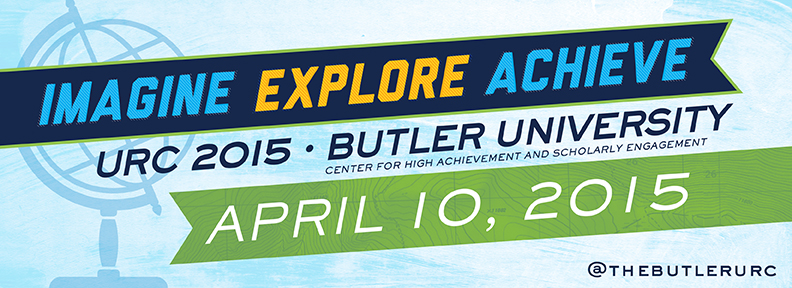
Pharmacy, Health Sciences & Exercise Science
Warfarin vs. Rivaroxaban in Long Term Acute Care Patients with Nonvalvular Atrial Fibrillation: A Budget Impact Analysis
Document Type
Oral Presentation
Location
Indianapolis, IN
Subject Area
Pharmacy, Health Sciences & Exercise Science
Start Date
10-4-2015 11:15 AM
End Date
10-4-2015 12:00 PM
Sponsor
Deborah Zeitlin (Butler University)
Description
Warfarin Versus Rivaroxaban In Long Term Acute Care
Patients With Nonvalvular Atrial Fibrillation: A Budget Impact Analysis
Brian A. Bell Pharm.D. Candidate, Kyle M. Frantz Pharm.D. Candidate,
Brayton R. Jones Pharm.D. Candidate, Deborah Zeitlin Pharm.D.
Butler University College of Pharmacy and Select Specialty Hospital, Indianapolis, Indiana
Background: Atrial fibrillation (AF) is a common arrhythmia affecting over 2 million adult Americans. Historically, warfarin was the only oral anticoagulant available due to no other safe and effective Food and Drug Administration (FDA) approved oral agents. The potential cost savings of newer oral anticoagulants has not been studied in long term acute care institutions in clinical trials especially when compared to warfarin.
Study Objective: Retrospectively assess past treatment and management expenses at Select Specialty Hospital-Indianapolis and calculate overall costs when comparing warfarin to rivaroxaban therapy.
Hypothesis: There are potential cost savings when switching nonvalvular atrial fibrillation patients from warfarin to rivaroxaban.
Methods: Patient data and hospital treatment costs at Select Specialty Hospital-Indianapolis will be retrospectively analyzed via hospital medical records. Data collection on costs accrued by the hospital will include direct cost of medications to the hospital, cost of routine and acutely ordered lab testing, and other management expenses based on patients' length of stay.
Study Subjects: Included patients must have been treated with either warfarin or rivaroxaban for nonvalvular atrial fibrillation on or after July 1, 2011. Patient stay must extend beyond 7 days, and patients must have a CHA2DS2VASC score of > 2. Patients with contraindications to either warfarin or rivaroxaban or a history of recurrent stroke and ineligible for a therapy rechallenge will be excluded.
Results: Data collection is underway at this time. The results will be presented at the Butler University Undergraduate Research Conference.
Significance: Using new oral anticoagulants more presents an opportunity for long term acute care facilities to save on disease management costs; thus, establishing a cost-effective option that may provide budget savings. The study results may further help administrators make formulary decisions regarding oral anticoagulant treatment for patients with nonvalvular AF.
Warfarin vs. Rivaroxaban in Long Term Acute Care Patients with Nonvalvular Atrial Fibrillation: A Budget Impact Analysis
Indianapolis, IN
Warfarin Versus Rivaroxaban In Long Term Acute Care
Patients With Nonvalvular Atrial Fibrillation: A Budget Impact Analysis
Brian A. Bell Pharm.D. Candidate, Kyle M. Frantz Pharm.D. Candidate,
Brayton R. Jones Pharm.D. Candidate, Deborah Zeitlin Pharm.D.
Butler University College of Pharmacy and Select Specialty Hospital, Indianapolis, Indiana
Background: Atrial fibrillation (AF) is a common arrhythmia affecting over 2 million adult Americans. Historically, warfarin was the only oral anticoagulant available due to no other safe and effective Food and Drug Administration (FDA) approved oral agents. The potential cost savings of newer oral anticoagulants has not been studied in long term acute care institutions in clinical trials especially when compared to warfarin.
Study Objective: Retrospectively assess past treatment and management expenses at Select Specialty Hospital-Indianapolis and calculate overall costs when comparing warfarin to rivaroxaban therapy.
Hypothesis: There are potential cost savings when switching nonvalvular atrial fibrillation patients from warfarin to rivaroxaban.
Methods: Patient data and hospital treatment costs at Select Specialty Hospital-Indianapolis will be retrospectively analyzed via hospital medical records. Data collection on costs accrued by the hospital will include direct cost of medications to the hospital, cost of routine and acutely ordered lab testing, and other management expenses based on patients' length of stay.
Study Subjects: Included patients must have been treated with either warfarin or rivaroxaban for nonvalvular atrial fibrillation on or after July 1, 2011. Patient stay must extend beyond 7 days, and patients must have a CHA2DS2VASC score of > 2. Patients with contraindications to either warfarin or rivaroxaban or a history of recurrent stroke and ineligible for a therapy rechallenge will be excluded.
Results: Data collection is underway at this time. The results will be presented at the Butler University Undergraduate Research Conference.
Significance: Using new oral anticoagulants more presents an opportunity for long term acute care facilities to save on disease management costs; thus, establishing a cost-effective option that may provide budget savings. The study results may further help administrators make formulary decisions regarding oral anticoagulant treatment for patients with nonvalvular AF.
